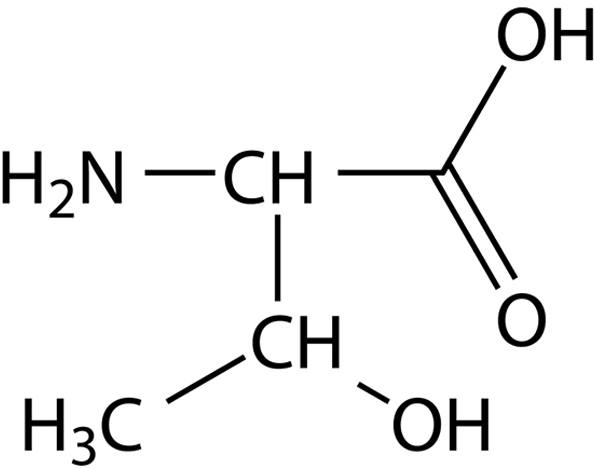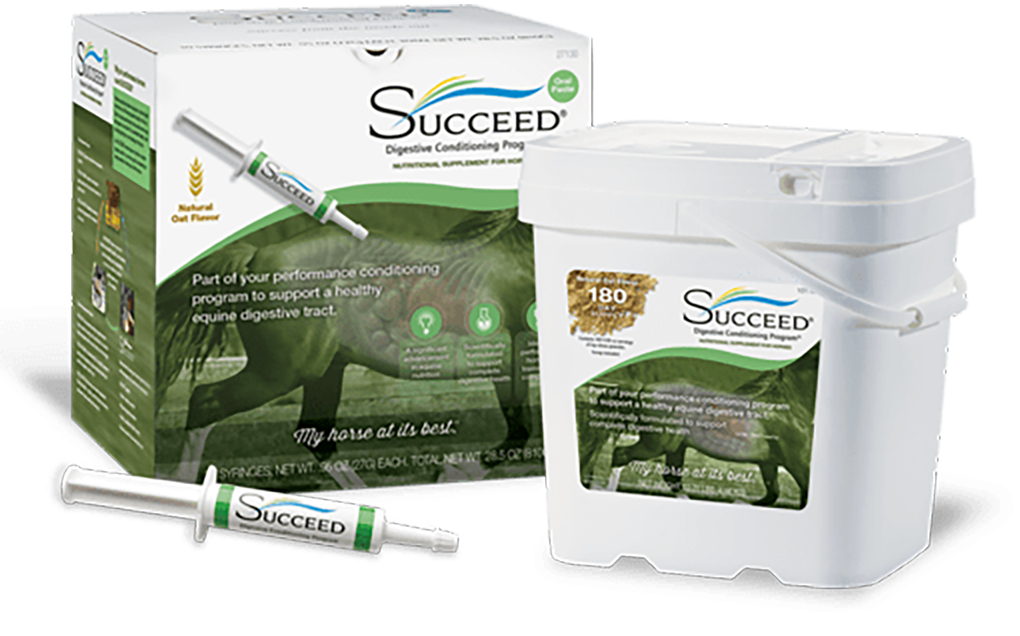
Health Benefits of L-Threonine for Horses
While animals can synthesize L-threonine on their own, that process is energetically unfavorable compared to absorption from the diet. A dietary deficiency slows the regeneration of the gut wall and depresses the production of mucus, making dietary L-threonine beneficial for optimal digestive tract function. Some 60% of dietary L-threonine is used directly by the gut itself, and never makes it to the bloodstream.
L-threonine is an essential amino acid necessary for GI tract health. In horses, L-threonine:
- contributes to a smoothly functioning GI tract
- assists metabolism and nutrient absorption
- contributes to mucus production
- heals wounds and treats stress
A Component of Mucin That Protects the Gut Barrier & Aids Nutrient Absorption
L-threonine plays an important role in the production of mucin, a significant component of mucus. A healthy mucus layer:
- protects the gut against digestives enzymes
- safeguards against physical damage by digesta
- protects against pathogens and toxins
- supports commensal bacteria
Occasional intestinal inflammation is a normal part of life for all animals, but horses can be especially sensitive to their feed and feeding schedules. Providing horses grains or sweets can contribute to hind-gut acidosis, associated with an overgrowth of acid-producing bacteria, some of which can be pathogenic. Inflammation may result, which targets the pathogens, but may also lead to collateral damage to the gut lining.
Inflammation triggers extra mucus production by the goblet cells throughout the gut in order to better protect the gut lining, and this requires extra L-threonine. When synthesis can’t keep up with bodily needs, dietary L-threonine may be beneficial.
A Component of Immunoglobulins that Aid Immunity
L-threonine is also a primary component in immunoglobulins and promotes immunity. Immunoglobulins are glycoproteins that identify, bind and neutralize or tag antigens, ensuring that harmful bacteria and viruses are destroyed.
L-threonine’s essential link in the production of immunoglobulins makes it especially useful for wound healing and for treating stress. With its immune-boosting properties, L-threonine helps speed up the healing process following trauma, injury or normal wear-and-tear.
L-Threonine Supports Equine Digestive Health
Assess your horse’s health to determine if added digestive support may be beneficial for health and performance.
References
Bertolo RF, Chen CZ, Law G, Pencharz PB, Ball RO. Threonine requirement of neonatal piglets receiving total parenteral nutrition is considerably lower than that of piglets receiving an identical diet intragastrically. J Nutr. 1998 Oct;128(10):1752-9.
Ball RO, Law G, Bertolo RFP, Pencharz PB. Adequate oral threonine is critical for mucin production and mucosal growth by neonatal piglet gut. Proceedings of the VIIIth International Symposium on Protein Metabolism and Nutrition, EAAP, 1999
Cuaron JA, Chapple RP, Easter RA. Effect of lysine and threonine supplementation of sorghum in gestation diets on nitrogen balance and plasma constituents in first litter gilts. J. Anim. Sci., 58, 631-637
Faure, Magali, et al. “Dietary threonine restriction specifically reduces intestinal mucin synthesis in rats.” The Journal of nutrition 135.3 (2005): 486-491.





See what #TeamSUCCEED riders are saying.






Is SUCCEED right for you?
Find out if your horse’s health and performance could benefit from added digestive support.
